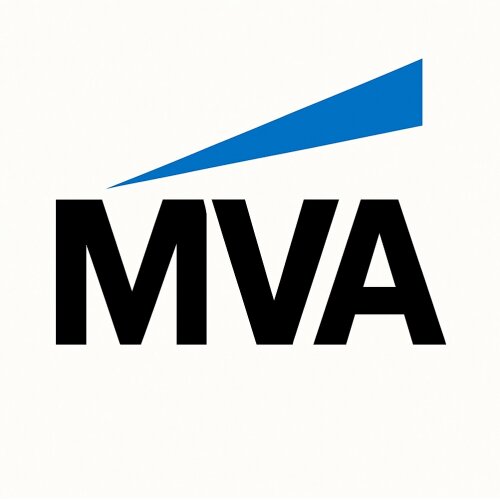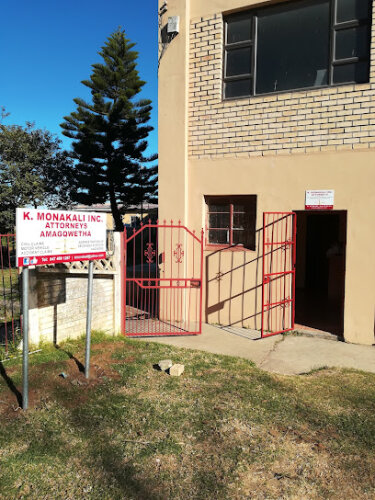Best Adoption Lawyers in East London
Share your needs with us, get contacted by law firms.
Free. Takes 2 min.
Free Guide to Hiring a Family Lawyer
List of the best lawyers in East London, South Africa
About Adoption Law in East London, South Africa
Adoption in East London, South Africa, is governed primarily by the Children’s Act 38 of 2005, which ensures the best interests of the child are always considered. The process allows for children who cannot be cared for by their biological parents to be placed in permanent and loving homes. The act clearly outlines who can adopt, the procedures involved, and safeguards in place for all parties. In East London, as everywhere in South Africa, legal support and involvement of social workers are essential to ensure an ethical, transparent, and legally binding adoption process.
Why You May Need a Lawyer
Adoption is a complex legal process requiring careful attention to detail to prevent delays or complications. Here are common situations where you may need a lawyer:
- If you are unsure about your eligibility to adopt or have questions about your rights as an adoptive parent.
- To assist in compiling necessary documentation and ensuring all legal requirements are met.
- In cases where there are disputes or uncertainties regarding the consent of the biological parents.
- If you are adopting a child from a different province or outside South Africa (inter-country adoption).
- To interpret the Children’s Act, especially when special circumstances or exceptions may apply.
- If you are contesting or responding to a challenge to the adoption in court.
Legal guidance helps to protect all parties from costly mistakes, streamlines the process, and ensures that the adoption is recognized by the authorities.
Local Laws Overview
Adoption in East London must comply with both national and provincial regulations. The Children’s Act 38 of 2005 is the main legal text, and it:
- Specifies who may adopt - individuals must be over 18 and deemed fit and proper by the courts.
- Mandates the involvement of a registered adoption social worker or an authorized child protection organization.
- Requires consent from the biological parents or guardians, unless the court waives this under special circumstances (such as abandonment).
- Requires that the child’s best interests are paramount throughout the process.
- Encourages the consideration of the child’s cultural, religious, and linguistic background.
- Allows for post-adoption support and record-keeping by relevant social services.
The process typically involves initial counselling, home studies, matching with a child, legal proceedings, and post-adoption follow-up. The High Court or Children’s Court must approve and finalize all adoptions.
Frequently Asked Questions
What are the eligibility requirements for adopting a child in East London?
Generally, any person over the age of 18, regardless of marital status, may apply to adopt. The court considers factors such as maturity, financial stability, and ability to care for a child before granting approval.
Do both partners need to adopt if we are a married couple?
Yes, if you are married or in a civil partnership, both partners must adopt jointly unless special circumstances apply.
Do I need the consent of the child’s biological parents to adopt?
Yes, consent is generally required from the biological parents. However, the court may dispense with consent in cases of abandonment, abuse, or inability to locate the parents.
Can single people adopt a child?
Yes, single individuals can apply to adopt in South Africa, provided they meet the suitability and legal requirements set by the Children’s Act.
What documents are needed to start the adoption process?
Common requirements include proof of identity, marriage certificates (if applicable), medical reports, police clearance, and financial statements.
How long does the adoption process usually take?
The timeline can vary, but on average, local adoptions in East London may take 12 to 18 months from application to finalization, depending on circumstances.
Can foreign nationals adopt in South Africa?
Yes, but inter-country adoptions are subject to strict regulations and oversight by both South African and the adopting country’s authorities. The process is rigorous to prevent child trafficking.
What role do social workers play in adoption?
Registered adoption social workers conduct home studies, assess suitability, facilitate matching, and provide post-adoption support. Their reports are crucial to the legal process.
Can adoption records be accessed by the adopted child?
Yes, once the child reaches 18 years of age, they may request access to their adoption records in accordance with South African law, though there are procedures to follow.
What financial support or subsidies are available for adoptive parents?
South African law does not currently provide routine adoption subsidies. However, adoptive parents can apply for the government child support grant, subject to means testing.
Additional Resources
If you are considering adoption or need legal advice, the following resources may be useful:
- Department of Social Development (DSD) - The provincial DSD office in East London can provide information and refer you to registered social workers.
- Child Welfare South Africa - Offers counselling, home studies, and adoption facilitation.
- Registered Adoption Social Workers - Practising in private or through NGOs, these professionals are essential for legal adoptions.
- Legal Aid South Africa - May provide free or subsidized legal help in certain cases.
- South African Law Society - For assistance in finding a qualified legal practitioner with adoption experience.
Next Steps
If you wish to proceed with an adoption or require legal advice, consider taking the following steps:
- Contact the Department of Social Development or a reputable child welfare organization in East London for initial information and counselling.
- Schedule a consultation with a registered adoption social worker to begin the formal assessment process.
- If legal complexities arise or you simply want to ensure your interests are protected, consult a lawyer who specializes in family and adoption law.
- Gather all necessary documentation early in the process to avoid delays.
- Attend required interviews, home studies, and parenting workshops as recommended by your social worker or legal representative.
- Stay informed about your rights and obligations throughout the process.
Seeking professional guidance can help ensure the adoption process is smooth, ethical, and legally sound, giving you the best chance of success and security for your future family.
Lawzana helps you find the best lawyers and law firms in East London through a curated and pre-screened list of qualified legal professionals. Our platform offers rankings and detailed profiles of attorneys and law firms, allowing you to compare based on practice areas, including Adoption, experience, and client feedback.
Each profile includes a description of the firm's areas of practice, client reviews, team members and partners, year of establishment, spoken languages, office locations, contact information, social media presence, and any published articles or resources. Most firms on our platform speak English and are experienced in both local and international legal matters.
Get a quote from top-rated law firms in East London, South Africa — quickly, securely, and without unnecessary hassle.
Disclaimer:
The information provided on this page is for general informational purposes only and does not constitute legal advice. While we strive to ensure the accuracy and relevance of the content, legal information may change over time, and interpretations of the law can vary. You should always consult with a qualified legal professional for advice specific to your situation.
We disclaim all liability for actions taken or not taken based on the content of this page. If you believe any information is incorrect or outdated, please contact us, and we will review and update it where appropriate.












